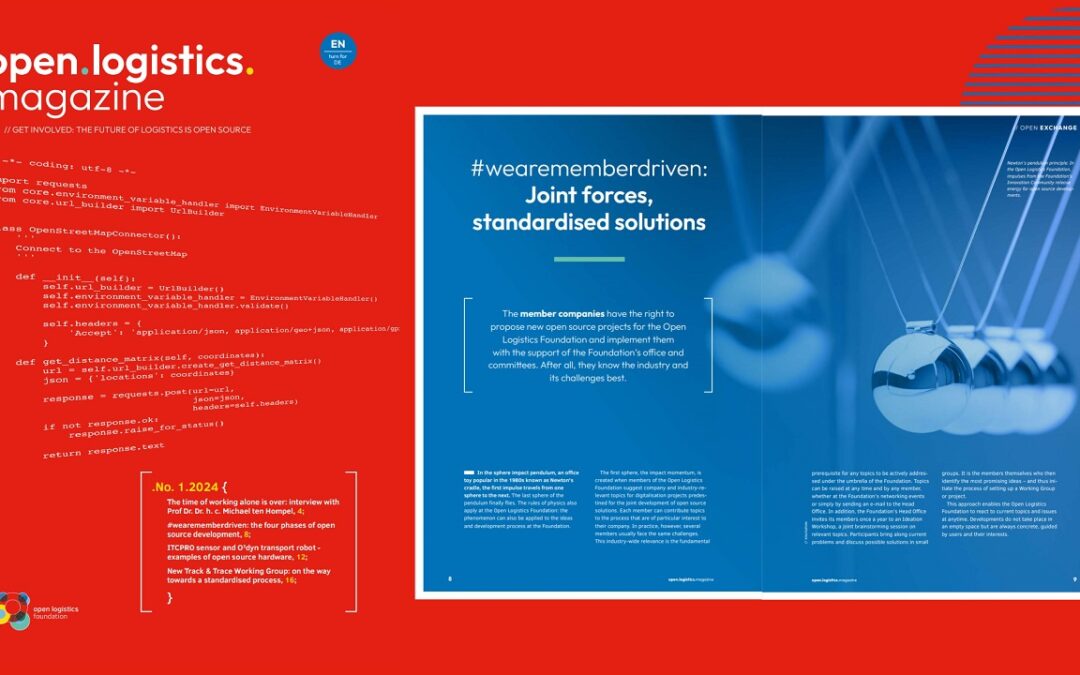
A groundbreaking project for customs processes
In its pursuit to enhance trust and transparency of data used in customs processes, the Working Group Open Customs Blockchain launched its second project aimed at making the customs clearance process more efficient. The Goods Passport ID (GPID) strives to revolutionise customs clearance by offering a single, reliable passport for goods flow, thereby ensuring trust by authorities and expediting clearance processes to mitigate delays.
#wearememberdriven – a deep dive into how we work.

#wearememberdriven: Joint forces, standardised solutions
The member companies have the right to propose new open source projects for the Open Logistics Foundation and implement them
with the support of the Foundation‘s office and committees. After all, they know the industry and its challenges best.
Welcome to the Open Logistics Foundation, BusinessCode GmbH!
What is a Legal Product Owner, and why do companies need one?

Foundation promotes collaborative logistics in the Beyond Visibility Lounge podcast
The Open Logistics Foundation, a leading advocate for collaborative solutions in the logistics industry, was recently featured in an insightful podcast episode titled “Beyond Boundaries: Opening up to transformative collaboration and Innovation”. In this insightful discussion, the Foundation’s pivotal role in driving transformative collaboration and fostering innovation was showcased, shedding light on key strategies and open source achievements in the logistics sector. Here are some highlights shared between Andreas Nettsträter, CEO of the Open Logistics Foundation, and Iliriana Kacaniku, CEO and Founder of the Open Solve Studio, as well as host and producer of the Beyond Visibility Lounge podcast.
